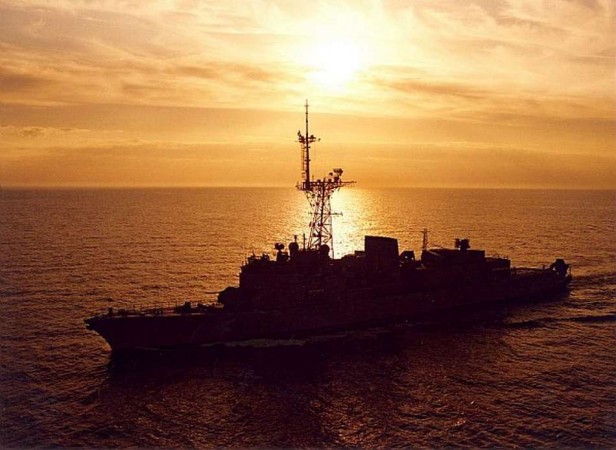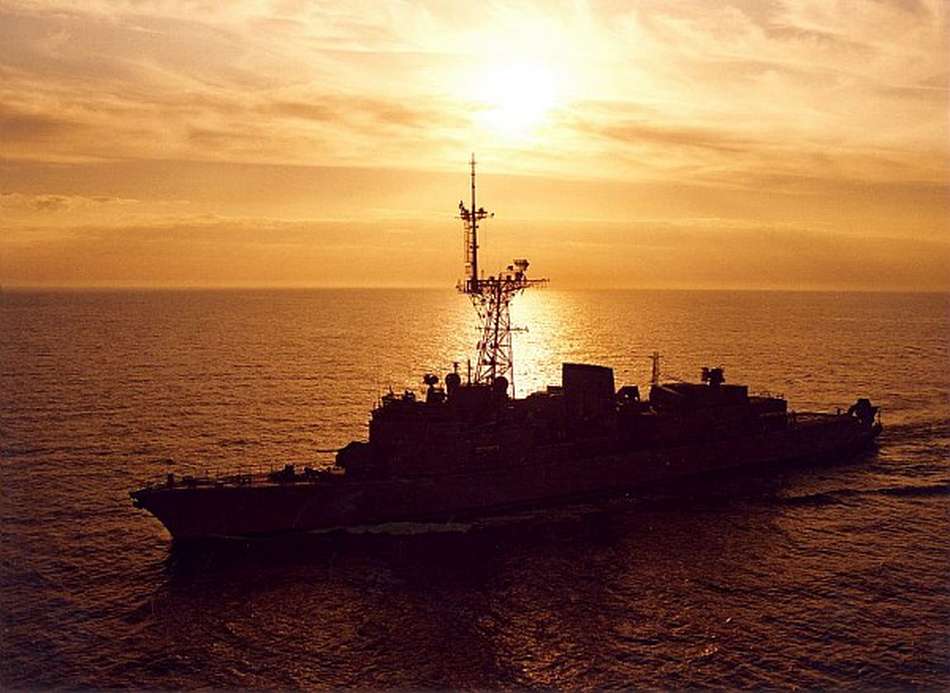The 'La Motte-Piquet' in the Strait of Hormuz with an American task force

(BRUSSELS2) While the Europeans approved financial and oil sanctions against Iran (read: The Iranian Central Bank in the sights of 27), a flotilla made up of six warships, American, British and ... French, entered the Strait of Hormuz on Sunday night (January 22).
In the center of the device, the aircraft carrier USS Abraham Lincoln, capable of embarking up to 90 planes, accompanied by the missile cruiser USS Cape Saint George, and two other US destroyers. The Royal Navy's Type 23 frigate, HMS Argyll, joined them, as well as a French ship, the La Motte-Piquet, according to our information. Objective of this deployment: to ensure that the strait remains open to international traffic but also to send a clear signal to Iran. Military officials are trying to mitigate this effect. Thus the group entered, at night, in the strait, and in a discreet way.
Leave open to traffic
The anti-submarine frigate which left for a 4-month mission in the Indian Ocean and the Gulf, within the framework of the fight against piracy (Eunavfor Atalanta) and against terrorism (Enduring Freedom) does not however participate to the American task force or any deployment made a point of specifying to B2 the spokesman of the armies French (DICOD). For Colonel Thierry Burkhard, in fact, the " Lamotte-Piquet passed through a fairly usual framework in this Arab-Persian zone. And, he naturally coordinated with the allied navies, as he does in other areas » . Necessary coordination: the configuration of the premises and the deployment in a "security bubble" of the aircraft carrier group requires such coordination. " This should not be seen as a sign or a desire to demonstrate the strength ". Lamotte-Piquet is present “for 3-4 weeks, as part of the French presence in the Arab-Persian zone he clarified. Once the strait is crossed, he resumes its mission (national). Same cautious tone in London where a spokesperson for the British Navy assures that the Navy " has a constant presence in the region, which is a contribution to security in the region ».
Double approach of the Europeans: sanctions and dialogue
On the Foreign Affairs side, the tone is a little harsher, however. Any attempt by Iran to block the Strait of Hormuz is " illegal "and is condemned" to failure recalled William Hague, the British Minister for Foreign Affairs on his arrival in Brussels, before the Council of Ministers. A remark that was keen to qualify his compatriot, Catherine Ashton, the High Representative of the EU for Foreign Affairs, who insisted on the "double approach" of the European Union: sanctions but also dialogue. “The sanctions pressure is designed to make Iran take our offer to meet and negotiate seriously. Everything I have said in recent weeks bears witness to the importance we attach to their coming back to the negotiating table and discussing the questions that we raised in Istanbul a year ago, even forward their own proposals. Iran should not miss this opportunity, she stressed. " not just to talk, but to solve concrete problems. (...), a meeting is an opportunity and I hope they will seize it »
On penalties, read also: The Greek problem settled, the EU adopts sanctions against Iran
